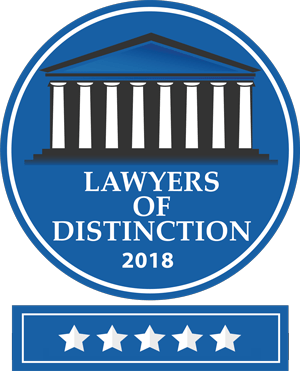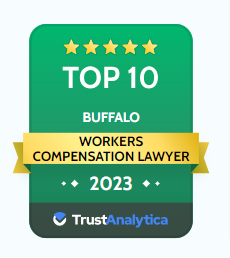Covid-19 Workers’ Comp Claims Are Being Held Up or Denied
Sep 8, 2020Virginia Ligi started to feel really sick in the middle of her 16-hour shift in April as a corrections officer in Cheshire, Connecticut. A week before, she had called her doctor because she was having trouble tasting and smelling, but he told her not to worry. Then she started to feel lightheaded and dizzy and had a hard time breathing. Her doctor sent her to get a nasal swab test for Covid-19 the same day, which came back positive. She spent the next three weeks in bed with vertigo, shortness of breath, muscle aches, migraine headaches, and vomiting. She struggled to keep her eyes open. “It was like nothing I’ve ever experienced in my life,” she said. “It was all day every day, all day long.”
Ligi is certain she got Covid-19 from her work. “In our job, to be honest with you, social distancing is nearly impossible,” she said. She works on a housing floor with up to 100 inmates, plus her fellow officers. “That six-foot rule is really not applicable in prison.” It’s impossible to open windows for better ventilation. The facility couldn’t secure enough cleaning supplies at first. On top of that, there was a shortage of masks, so instead of adequately protective N95 masks, she was given one surgical mask to last until whenever the next shipment arrived. Covid-19 cases had already started to crop up in the facility before she got sick. Plus, she doesn’t know where else she could have gotten it; nearly everything was shut down at that point.
“We were forced to go to work because we had to,” she said. “We had to go in harm’s way.”
In return for shouldering that risk, she assumed that she would be repaid. She filed a claim with her state workers’ compensation system, expecting that it would cover some of her pay for the time she was out from work and the medical care she received.
But she still hasn’t gotten any benefits. “I didn’t even get so much as a denial letter,” she said. “I got zero contact.”
In Massachusetts, for example, out of 5,030 reports of first injury — the first step in a workers’ comp claim — 734 have been denied and 69 are in dispute, according to state government data shared with The Intercept by the Massachusetts Coalition for Occupational Safety and Health. In California, workers have made over 30,000 workers’ comp claims, nearly a quarter of which have already been denied. Out of 3,807 claims in Florida, 1,695 had been denied as of the end of May. Many of the denials have been in front-line occupations. Over 370 in Massachusetts were in health care, as were 521 in Florida. Another 780 were denied to protective services, including first responders, in Florida.
“Before the pandemic, workers’ comp was in many ways a failed system,” noted Debbie Berkowitz, worker health and safety program director at the National Employment Law Project. But Covid-19 “exposes the weakness of workers’ safety rights.”
Workers’ compensation was set up over a century ago as a grand bargain between employers and employees. Employees gave up their right to sue their employers over injuries and illnesses sustained on the job, even if they were caused by negligence. In return, workers were supposed to get speedy financial relief. Workers are meant to be able to file a claim and get timely replacement pay and medical coverage. If they end up permanently disabled, there are ongoing benefits. If they die, their families are due a survivors’ benefit.
But states have steadily reneged on that deal, pushed along by business interests and the insurance companies that offer workers’ comp coverage. Between 2003 and 2014, 33 states reduced benefits or made it more difficult to qualify. Some states have increased the criteria for coverage such that some claims are no longer covered; others exclude some illnesses and conditions altogether. In 2007, workers’ comp was estimated to cover less than a third of workers’ lost earnings and medical costs. Courts have ruled that benefits are so low and difficult to obtain in Alabama and Florida as to be unconstitutional. Even states that used to be leaders have backtracked: New York was the first state to adopt workers’ comp, and yet has steadily changed its system over the last 20 years to be less and less generous.
Many employers routinely deny workers’ comp claims in an attempt to duck liability, but most workers don’t know they can push back on the denials. “Workers, a lot of the time, still have to basically pursue a legal challenge in order to get decent benefits,” noted James Parrott, senior director of economic and fiscal policies at the Center for New York City Affairs.
Few workers even bother filing claims these days; in one study from 2009, just 8 percent of those with a serious job-related injury did so. Once they do, employers and insurers are only covering around 20 percent of the cost of their lost wages and medical bills or, for a worker who dies, the lost income for their family. “A work-related injury can really push a worker right out of the middle class,” Berkowitz said.“It’s an abomination,” Parrott said. It’s an example of “how corporate power over the years has steadily accumulated, and corporations have changed systems to their liking.”
The structure is even less sturdy when it comes to illnesses. “Workers’ comp [is] better if the injury actually happened right there on the job and everybody saw it,” Berkowitz noted. But for diseases that are less visible, that take longer to become apparent, it’s harder to prove they happened at work. Berkowitz pointed out that Congress had to pass specific legislation to give miners relief from black lung, even though “you don’t really get black lung from anything else.”
And while workers’ comp typically covers some occupational illnesses like tuberculosis contracted in hospitals, it doesn’t cover others like the flu. “There was no sense of certainty that [Covid] would be covered to begin with,” noted Sal Luciano, president of the Connecticut AFL-CIO.
At least 19 states have taken some kind of action to create a presumption in their workers’ comp systems that workers contracted Covid-19 through their employment, according to a tally compiled by the Connecticut AFL-CIO. A presumption should pave a much smoother path to get coronavirus-related claims approved. But the actions vary. Michigan’s governor extended a presumption only to “first response employees,” who are defined as health care workers and police officers. Kentucky’s governor, on the other hand, signed an executive order in early April that covers a huge swath of the workforce, including child care providers, grocery store employees, social service providers, and others.
Ligi was lucky to get two weeks of paid leave through the state. But she had to use a week of her own paid leave after that as she recovered. She ended up returning to work before she was actually ready because she didn’t want to use up any more of her benefits; she needed to preserve her time off in case one of her family members got sick and she had to care for them. Plus, hers was also the only source of income; her husband owns a restaurant, but it closed down for three months.
But it took her state a long time to act to ensure that workers like her could get back pay and medical coverage through the workers’ comp system, leaving her in the lurch for months. Gov. Ned Lamont finally signed an executive order on July 24 creating a presumption for Covid-19 workers’ comp claims. The order applies to all essential workers; it also designates Covid-19 as an occupational illness, which should bolster all workers’ cases.
After Lamont signed the executive order, “I felt like a huge weight had been lifted off of my shoulders,” Ligi said. It doesn’t necessarily secure her benefits; her case is still being reviewed.











